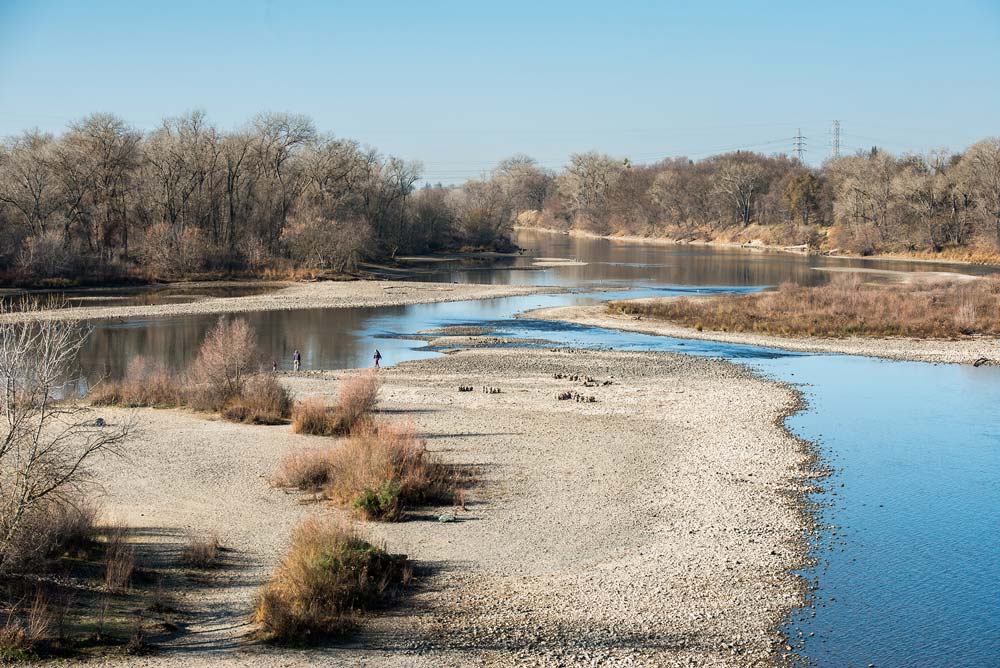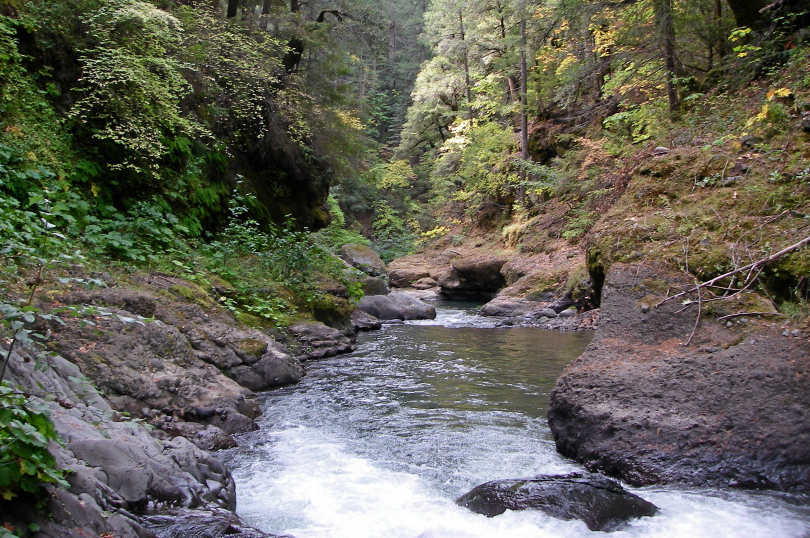Increase flows for outmigration
Both adult and young salmon need pulses of water flow at specific times of year to initiate and enable their migration up into and out of their natal streams. Salmon evolved this way, responding to the natural occurrence of spring snowmelt or fall rains that have always triggered migration. Now, with most streams and rivers in California altered in ways that have eliminated or masked these natural patterns of flow, salmon often don’t get the signals and water they need for migration.
 Low water levels in the American River © California Water Science Center – USGS
Low water levels in the American River © California Water Science Center – USGS
The Problem
The reasons for a lack of migration flows vary from place to place. But, it’s often due to water diversions in the spring and fall that dampen or entirely eliminate the pulse flows salmon need. In rivers with dams, its the result of insufficient or poorly timed releases of water during migration. In both cases, salmon across many systems simply do not have enough water at the right moments during their migration cycle to both be inspired to move and to successfully make the journey.
 The lower portion of Mill Creek is managed to provide salmon passage flows at critical times by the Mill Creek Management Committee © California Department of Fish and Wildlife
The lower portion of Mill Creek is managed to provide salmon passage flows at critical times by the Mill Creek Management Committee © California Department of Fish and Wildlife
The Solution
Work with landowners and water managers to provide pulse flows at the right times to support salmon migration
Creative thinking and collaboration are leading to effective solutions, including temporarily substituting groundwater for surface water being used for irrigation during critical times in order to leave natural flows or release extra water in streams during migration. Another solution is buying and protecting water rights for nature so that it can always be left instream at essential times. In all cases, it’s about delivering water where and when the fish need it most.
Examples
Resources
For more on this topic, check out this paper in the journal of Global Change Biology on the importance of flow for juvenile salmon outmigration.
Target populations and timing of outmigration can be determined through tools such as the ESHE (Emigrating Salmonid Habitat Estimation) model for the Sacramento and San Joaquin watersheds.
